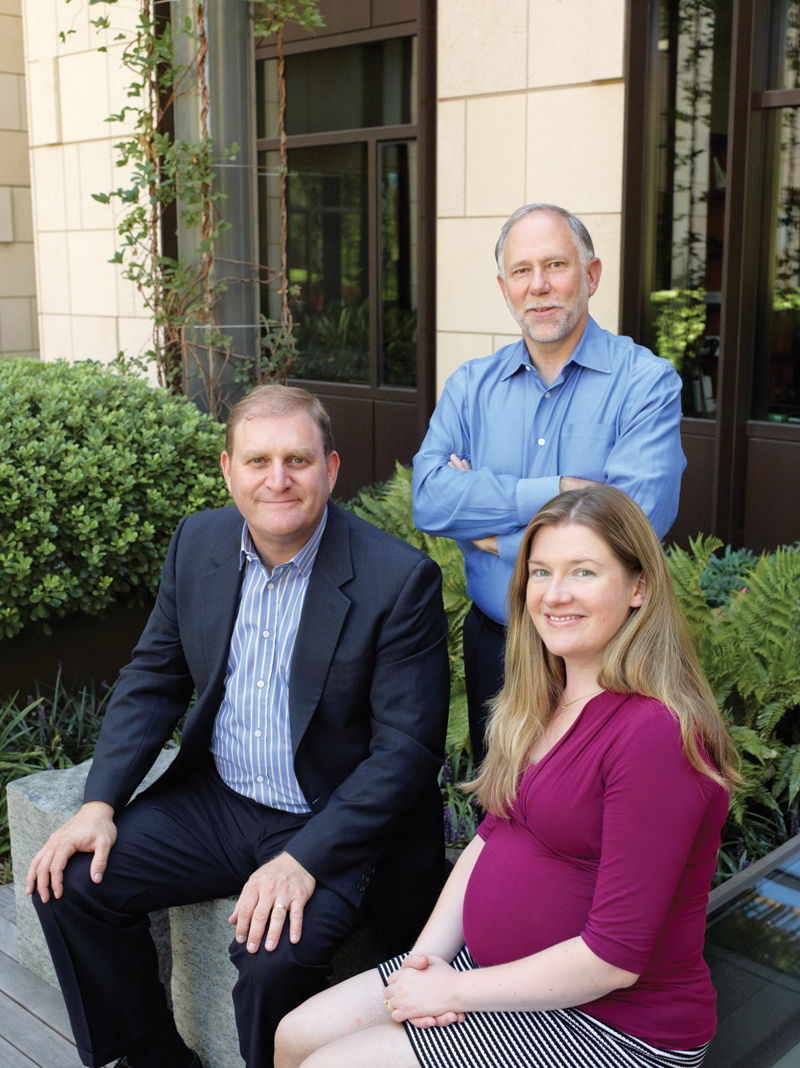New Faculty: Nathaniel Persily, JD ’98

When Nathaniel Persily first applied to Stanford Law School, he didn’t get in. “It turned out the LSAT folks never sent my scores in,” he says. “So, instead, I went to graduate school in political science at, of all places, Berkeley.”
Twenty years and several degrees later, Persily is the newly appointed James B. McClatchy Professor of Law.
Persily, who also holds a BA and MA from Yale and an MA and PhD in political science from the University of California, Berkeley, specializes in the law of democracy, including voting rights, regulation of political parties, campaign financing, and redistricting.
Soon after entering graduate school, he realized he did not want to be a full-time political scientist. “I always wanted my work to have a practical impact,” he says. “Even though I started my PhD studies first, I soon realized that the questions I was interested in were being asked by law professors and that a law degree would open up many more doors for me to the real world.”
So, after two years at Berkeley, with all but his dissertation completed, Persily entered Stanford Law in 1995 and got down to business. His mentor, Pam Karlan, whose former office he now occupies, was visiting from Virginia at the time. “Pam was for me, as for so many students, a walking inspiration,” he says. Karlan, now the Kenneth and Harle Montgomery Professor of Public Interest Law at Stanford and co-director of the Supreme Court Litigation Clinic, was among a group of election law scholars who joined in a law of democracy symposium of the Stanford Law Review, for which Persily was president.
Following graduation, Persily clerked for Judge David Tatel of the U.S. Court of Appeals for the D.C. Circuit, along with co-clerk and now California Supreme Court Associate Justice Goodwin Liu (BS ’91). “I wouldn’t say I was a very good clerk,” notes Persily. “Even though we had some amazing cases that year, including the independent counsel investigations of the Clinton administration, I had very particularized interests.”
His opportunity to pursue his passion came the following year at NYU’s Brennan Center for Justice, a public interest think tank that also conducts litigation. Not only did Persily work on the center’s brief in Bush v. Gore but he also represented John McCain in his lawsuit against the Republican Party to get on New York State’s primary ballot in 2000.
In the midst of these headline-making cases, Persily entered the legal academic market. “Law and democracy was really hot,” he says. “I was giving a job talk the day after the 2000 election, and I was interviewing while Bush v. Gore was happening.”
He landed his first academic position at the University of Pennsylvania Law School in 2001. While carrying a full teaching load, he finished his dissertation and also learned the technology of redistricting.
“When the New York courts appointed me to help draw the state’s congressional districts, I was one of the only people in the country not conflicted by working for a political party,” he observes. His nonpartisan reputation and his background as a political scientist, election law expert, and technical mapmaker have led him to become the go-to academic for courts resolving redistricting disputes. Persily has served as a court-appointed redistricting expert in a number of jurisdictions, including New York, Maryland, Georgia, Connecticut, and Puerto Rico.
Persily joined the Columbia University Law School faculty in 2006. There he was the founding director of the Center for Law and Politics, while holding a courtesy appointment in the political science department. Along with the standard courses, Persily taught a class introducing students to the redistricting process and challenged them to create a nonpartisan congressional redistricting plan for the entire United States. His website, DrawCongress.org, grew out of that undertaking.
In addition to the law of democracy, Persily’s other principal area of scholarship concerns public opinion. In his book, Public Opinion and Constitutional Controversy, Persily and his co-authors examine trends in public opinion and how they have changed as a result of Supreme Court decisions. Wearing his political scientist hat, Persily analyzes data on numerous issues, including desegregation, criminal rights, abortion, gay rights, federalism, school prayer, and the death penalty.
At SLS, Persily will teach courses spanning all of his interests including Constitutional Law, Law and the Political Process, Contemporary Issues in Law and Politics, and First Amendment. He also will teach classes for undergraduates, such as First Amendment.
“I try to engage students in the work that I am doing,” he says, noting that he had students in his first constitutional law class file an amicus brief in a census case and many have helped him with his redistricting work.
Persily also will be juggling his recent appointment as research director for President Obama’s Commission on Election Administration, which aims to make recommendations to improve the voting experience. “I’ve been flying all over the country, literally from Miami, Florida, to Anchorage, Alaska,” he says, “dealing with everything from long Election Day lines to broken voting machines to soldiers who try to vote while in combat zones.”
Despite his many commitments, Persily will have plenty of time to collaborate with his new cohorts. And they are looking forward to working with him.
“One of the things that sold me on Stanford when I visited in 1996,” Pam Karlan says, “was the chance to work with great people like Nate Persily. So I’m delighted he’s returned to SLS to be my permanent colleague.” SL
